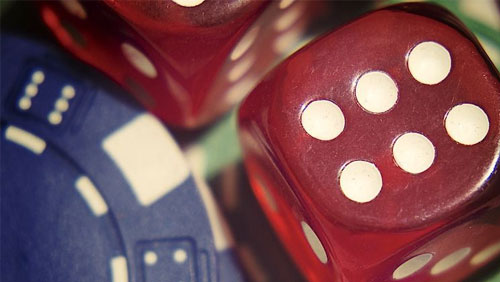 In an exclusive interview with Lindar Media, published on OnlineBingo.co.uk, Professor David J. Hand discussed the effect of probability on the gambling industry.
In an exclusive interview with Lindar Media, published on OnlineBingo.co.uk, Professor David J. Hand discussed the effect of probability on the gambling industry.
A recent survey, conducted by Lindar, revealed that just 0.5% of Britons are able to accurately judge the probability of independent events.
We took the opportunity to ask Professor Hand how this widespread failure could be used and exploited by those in the gambling industry, as well as how the misconceptions of players could both positively and negatively affect their behaviour.
His comments raise questions about:
- Regulation changes urging greater transparency of wagering requirements
- The impact of the changes on the online gambling industry
- How (and why) players will overlook long odds if the prize is great enough
- The effectiveness of existing responsible gambling policies
- The general psychology of players
For the full interview, click here.
On perception of probability and gambling addiction
“I can see definite links between a misunderstanding of probability and problem gambling.”
“There will always be some people who spend more than they have or can afford. I can see definite links between a misunderstanding of probability and problem gambling.
“One familiar example is the so-called gambler’s fallacy. This is the notion that, if a fair coin comes up heads ten times in a row then it’s more likely to come up tails next time. But this cannot be true – after all, the coin does not have a memory.”
On knowing when to give up
“The rational thing to do is to accept that the money has been lost and move on.”
“As to chasing their losses, this is the classic sunk cost fallacy of economics. The point about the lottery, and many other gambling situations, is that each game is fresh, starting from the beginning again. The rational thing to do is to accept that the money has been lost and move on.
“…The mind plays many tricks with probability. I recall a friend proudly telling me about his big wins betting on horse races. But talking to his girlfriend revealed the very large number of losing bets, which he had (doubtless subconsciously) suppressed.”
On losses and gains
“It’s important to recognise that when you buy a lottery ticket, you are buying a dream. You’re buying an experience – analogous to buying a cinema or concert ticket.”
“Studies have shown that people are more averse to losing something than they are gaining something equivalent. You would probably be more upset about having £1000 taken away from you than you would be pleased about having £1000 given to you.
“Losses and gains have to be put in context. It’s irrational for a poor person to spend £2 on a lottery ticket, but rational for a billionaire to do so.
“Also, I think it’s important to recognise that when you buy a lottery ticket, you are buying a dream. You’re buying an experience – analogous to buying a cinema or concert ticket.”
Professor Hand spoke to Lindar Media for OnlineBingo.co.uk in May 2016. He was speaking in response to our probability survey which challenged 1,500 people across Britain to compare the odds of seven likely and unlikely events – 99.5% of people got it wrong. Read the full results here.
Read our full David Hand interview: click here.
About Lindar Media
OnlineBingo.co.uk is owned and managed by Lindar Media. Lindar also operates popular bingo review site, Two Little Fleas, as well as Pixie Bingo and Circus Bingo.